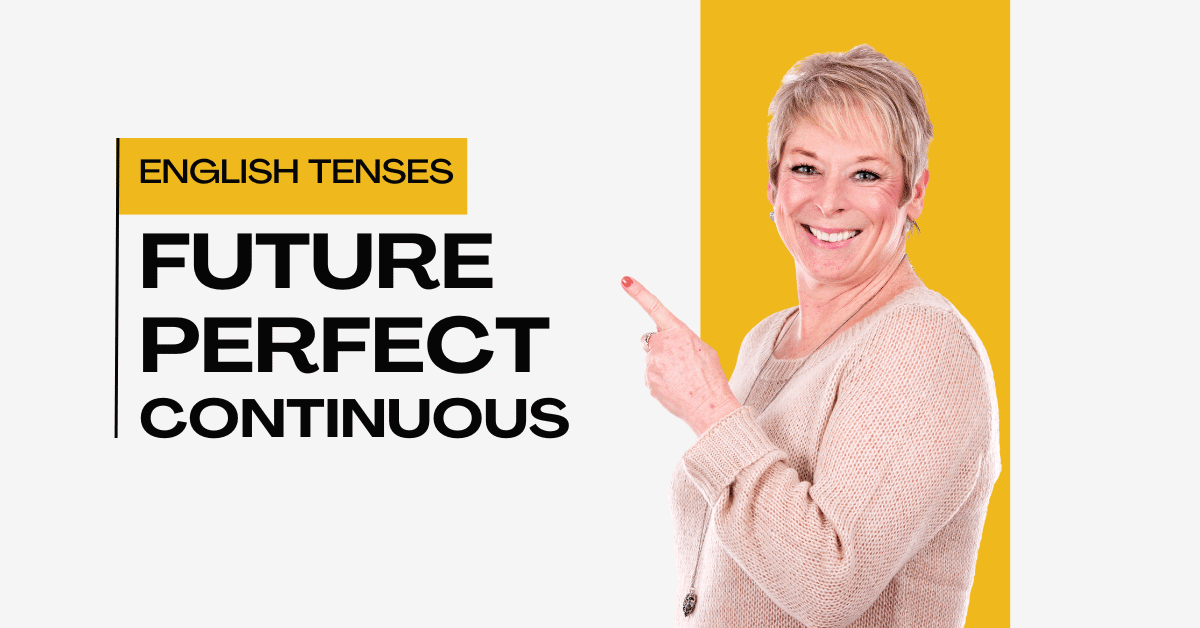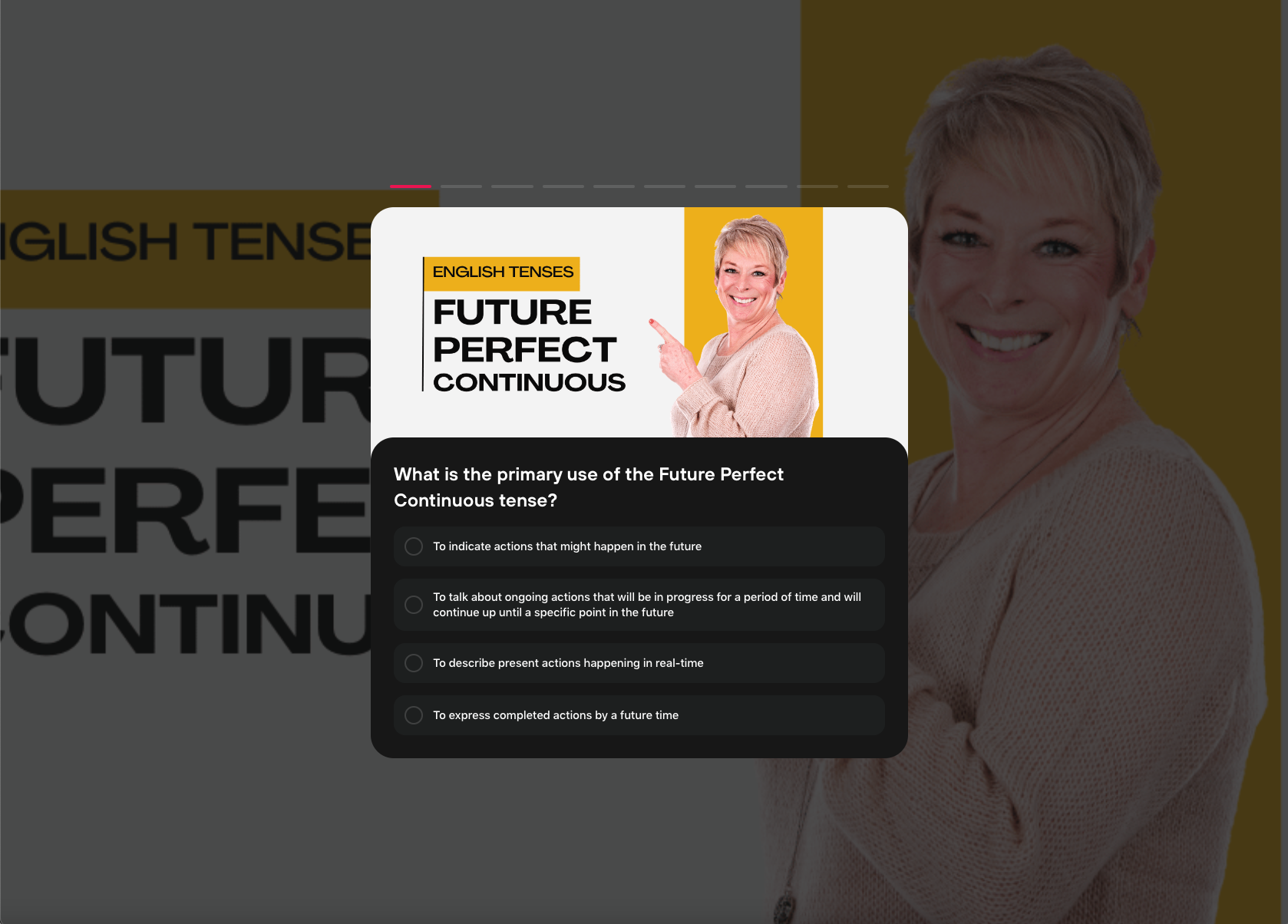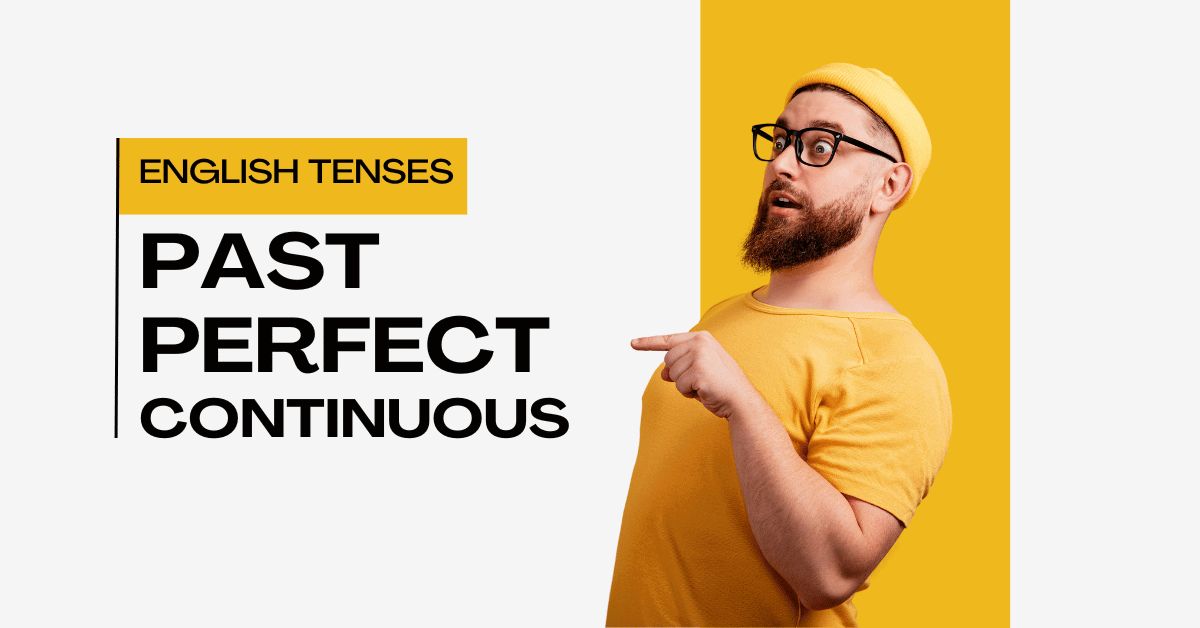Mastering the Future Perfect Continuous Tense: Express Long-Term Actions in English

Mastering the Future Perfect Continuous Tense: Express Long-Term Actions in English
Mastering the Future Perfect Continuous Tense: The Secret to Expressing Long-Term Actions in the Future
The English language is full of fascinating ways to describe actions, and one of the more advanced tenses is the Future Perfect Continuous Tense. It allows you to talk about ongoing actions that will be in progress for a time and will continue until a specific point in the future. While it might sound complicated, once you break it down, the Future Perfect Continuous becomes a powerful tool to add to your English grammar toolkit.
Source: Learn English Coach YouTube Channel
What is the Future Perfect Continuous Tense?
The Future Perfect Continuous Tense is used to express actions that will have been happening for a specific amount of time up until a certain point in the future. Imagine looking ahead to a moment in time and saying, “By then, I will have been doing this for X amount of time.” That’s the essence of this tense.
For example:
By next year, I will have been working at this company for ten years.
By 8 p.m., she will have been practicing the piano for four hours.
Notice how these sentences communicate the duration of an action up to a specific future point.
Structure of the Future Perfect Continuous
Before we dive into more examples, let’s look at how to form this tense. The structure might seem a bit long, but it’s consistent once you understand the parts:
[Subject] + will + have + been + [verb] + -ing
Here’s a breakdown:
Subject: I, you, he, she, we, they, etc.
Will: The auxiliary verb indicating the future.
Have: Another auxiliary verb needed to construct the tense.
Been: The past participle of “be.”
Verb + -ing: The present participle of the main action verb.
Now , let’s combine these parts into a sentence:
By this time tomorrow, I will have been studying for five hours.
This structure is the same regardless of who the subject is, making it easier to form sentences. Remember to use “will have been” plus a verb ending in -ing.
When to Use the Future Perfect Continuous Tense
This tense is most commonly used when you want to emphasize duration. It highlights how long an action will have been happening before a future point. Let’s explore a few scenarios where it’s especially useful:
Talking About Long-Term Projects or Tasks
If you’re working on something over a long period of time and you want to describe how long you will have been working on it by a certain date, the Future Perfect Continuous is ideal. For example:
By the end of the month, we will have been developing this app for two years.
Describing Habits or Routines in the Future
You can also use this tense to talk about repeated actions or habits that will have been happening up to a specific time in the future:
By next summer, I will have been running every morning for five months.
Explaining Effects of Long-Term Actions
Sometimes, you want to show how an action will affect something in the future due to its length. In these cases, the Future Perfect Continuous tense is the best way to express it:
By the time you arrive, she will have been waiting for three hours, so she might be tired.
Common Mistakes and How to Avoid Them
It’s easy to confuse the Future Perfect Continuous with other future tenses, especially the Future Perfect tense. The critical difference is that the Future Perfect Continuous emphasizes the ongoing nature of an action and its duration.
Compare these two sentences:
Future Perfect: By 2025, I will have finished my degree. (This focuses on the completion of an action.)
Future Perfect Continuous: By 2025, I will have been studying for six years. (This highlights the ongoing process and how long it has been happening.)
Another mistake to avoid is forgetting the “have been” part of the structure. Without these, the sentence won’t be grammatically correct.
Affirmative, Negative, and Interrogative Forms
Let’s briefly go over how to use the Future Perfect Continuous in different types of sentences.
Affirmative Form
By next month, I will have been teaching for five years.
Negative Form
By next month, I will not have been teaching for five years.
Simply add “not” after “will” to make the sentence negative.
Interrogative Form
Will I have been teaching for five years by next month?
In interrogative sentences, move “will” to the beginning of the sentence.
Final Thoughts
The Future Perfect Continuous Tense might initially seem complex, but with practice, it becomes an incredibly useful tool for describing actions that extend into the future. Whether you’re talking about long-term projects, routines, or actions that will impact the future, this tense allows you to express those ideas clearly and effectively.
FREE Quiz
Take our free quiz to test your knowledge of the Future Perfect Continuous tense.” 👉 Click Here to Start the Quiz






